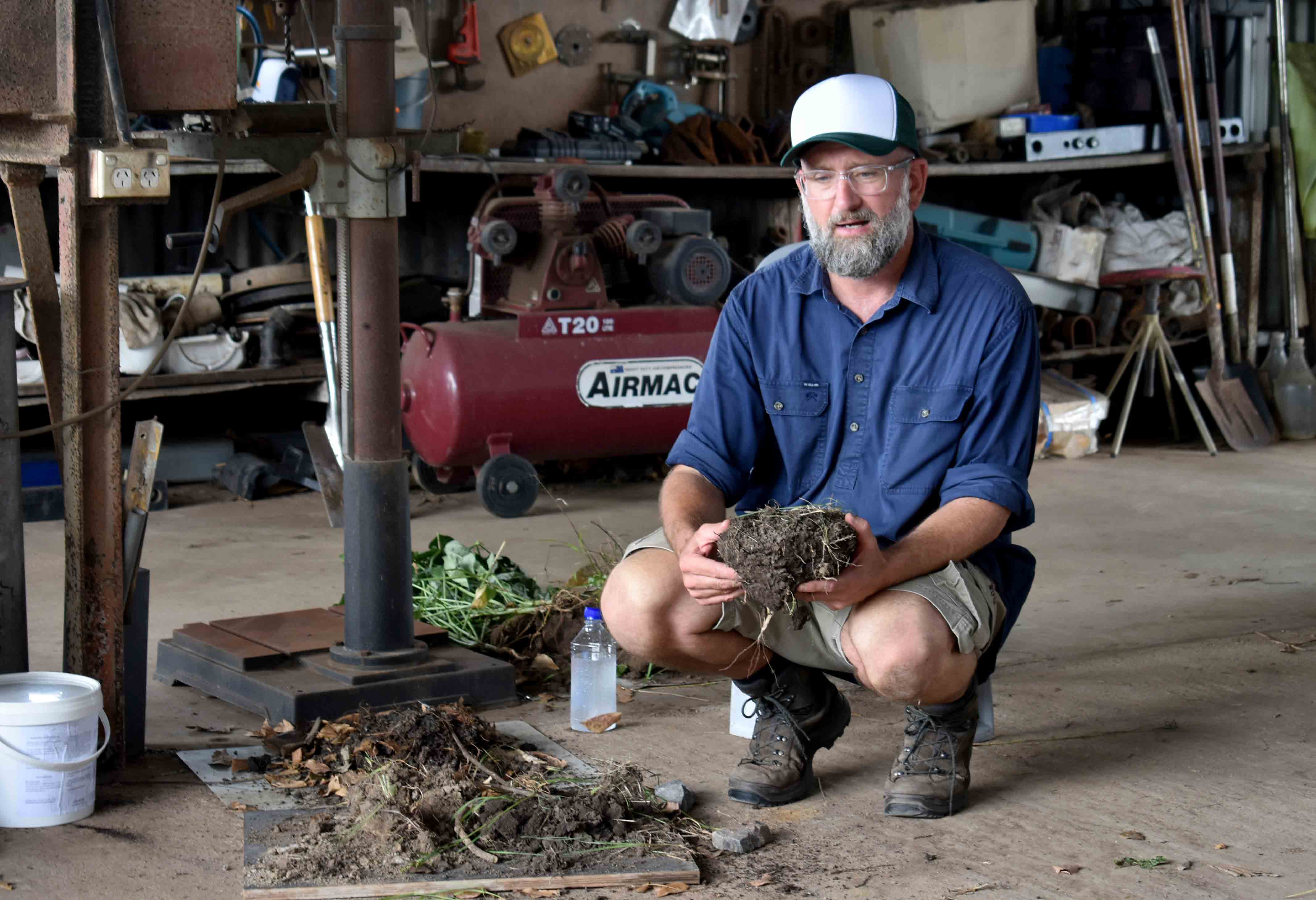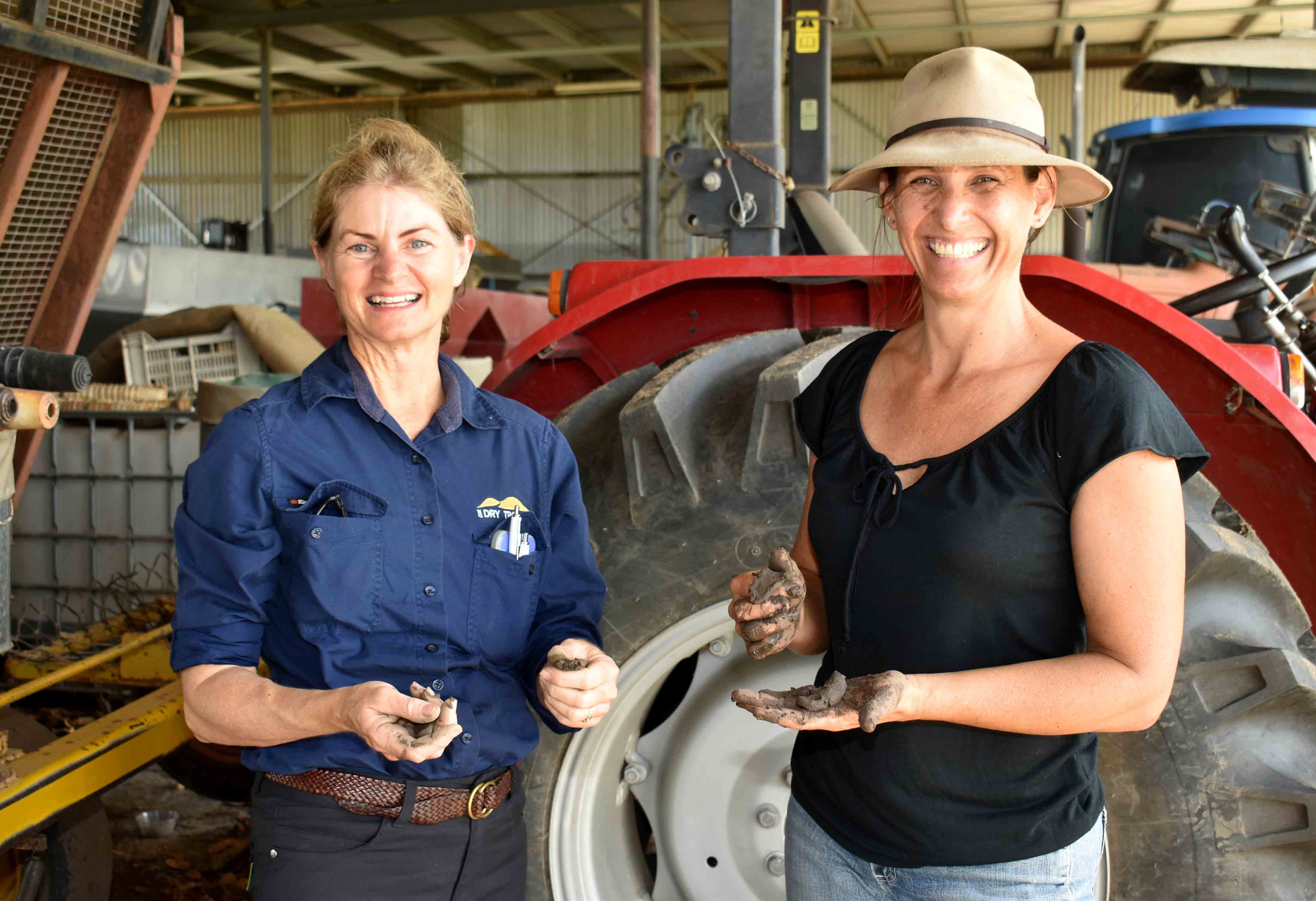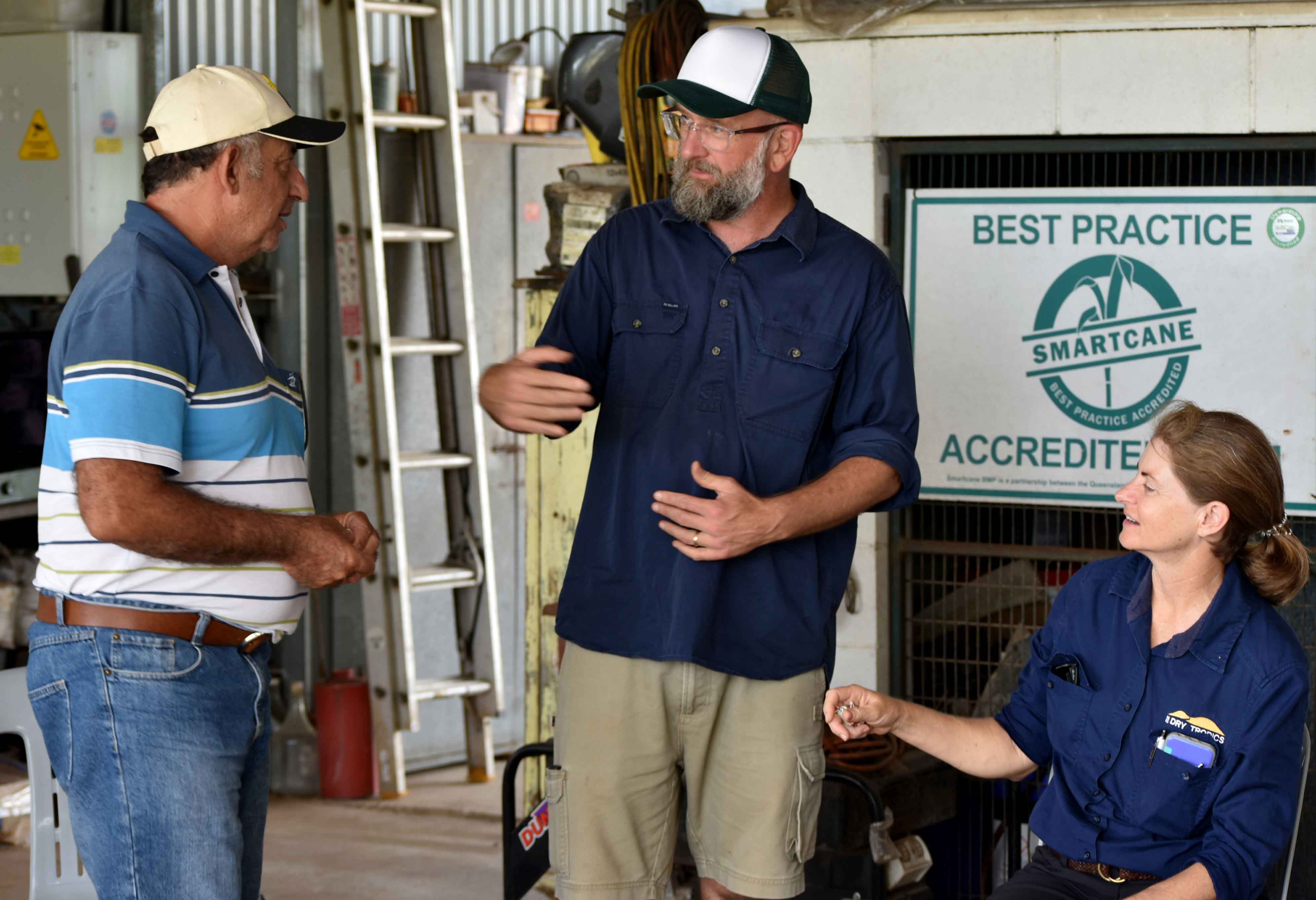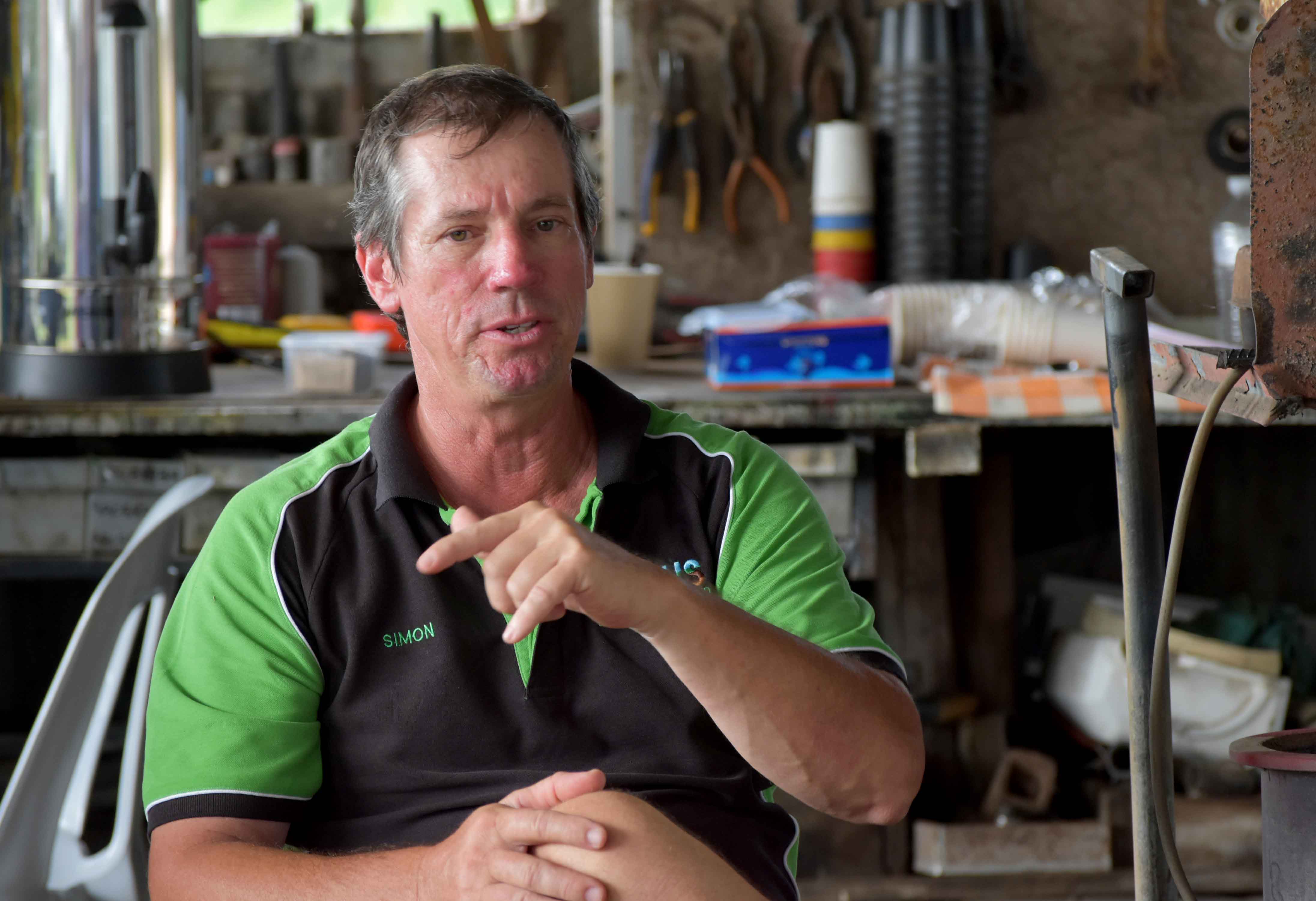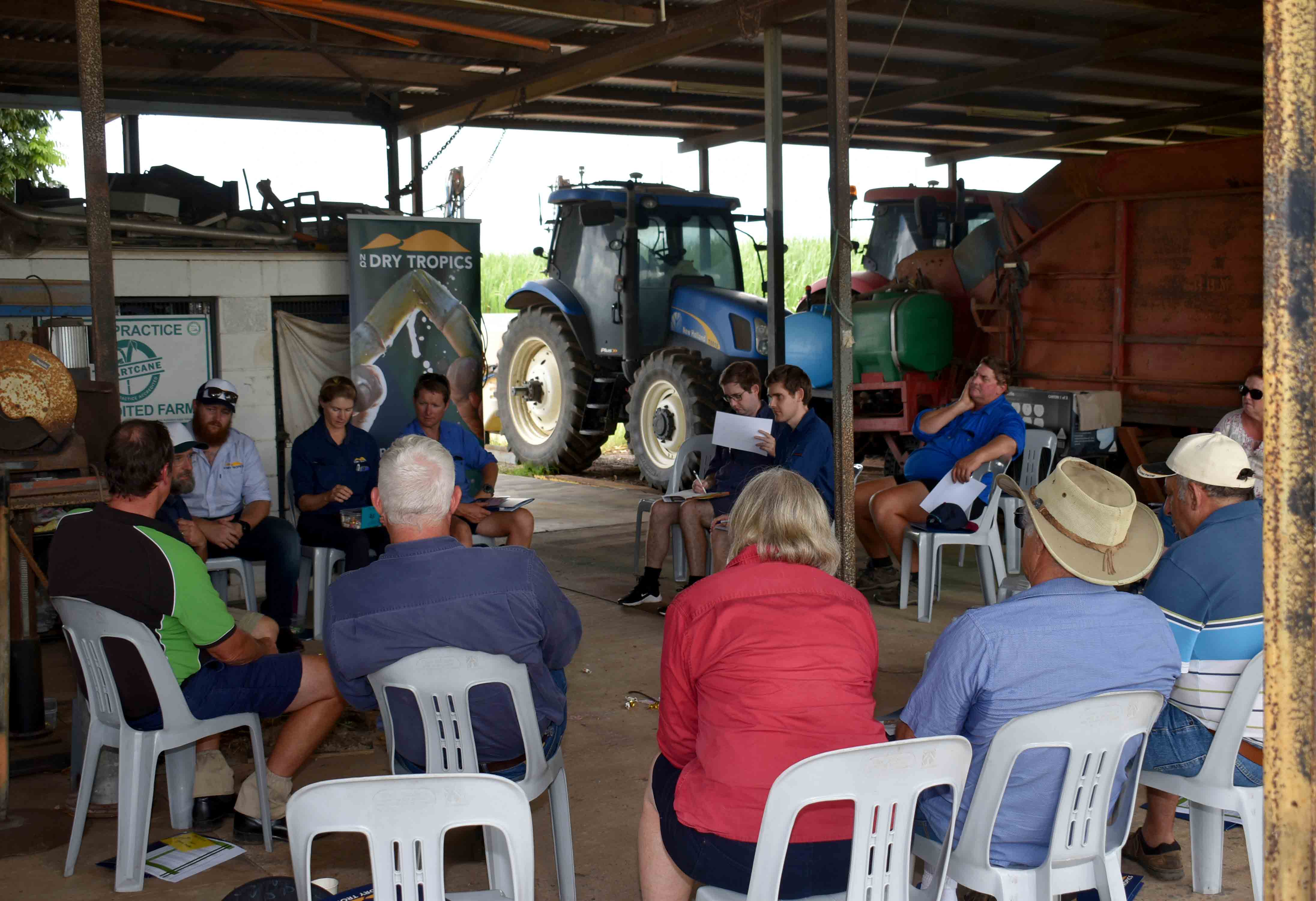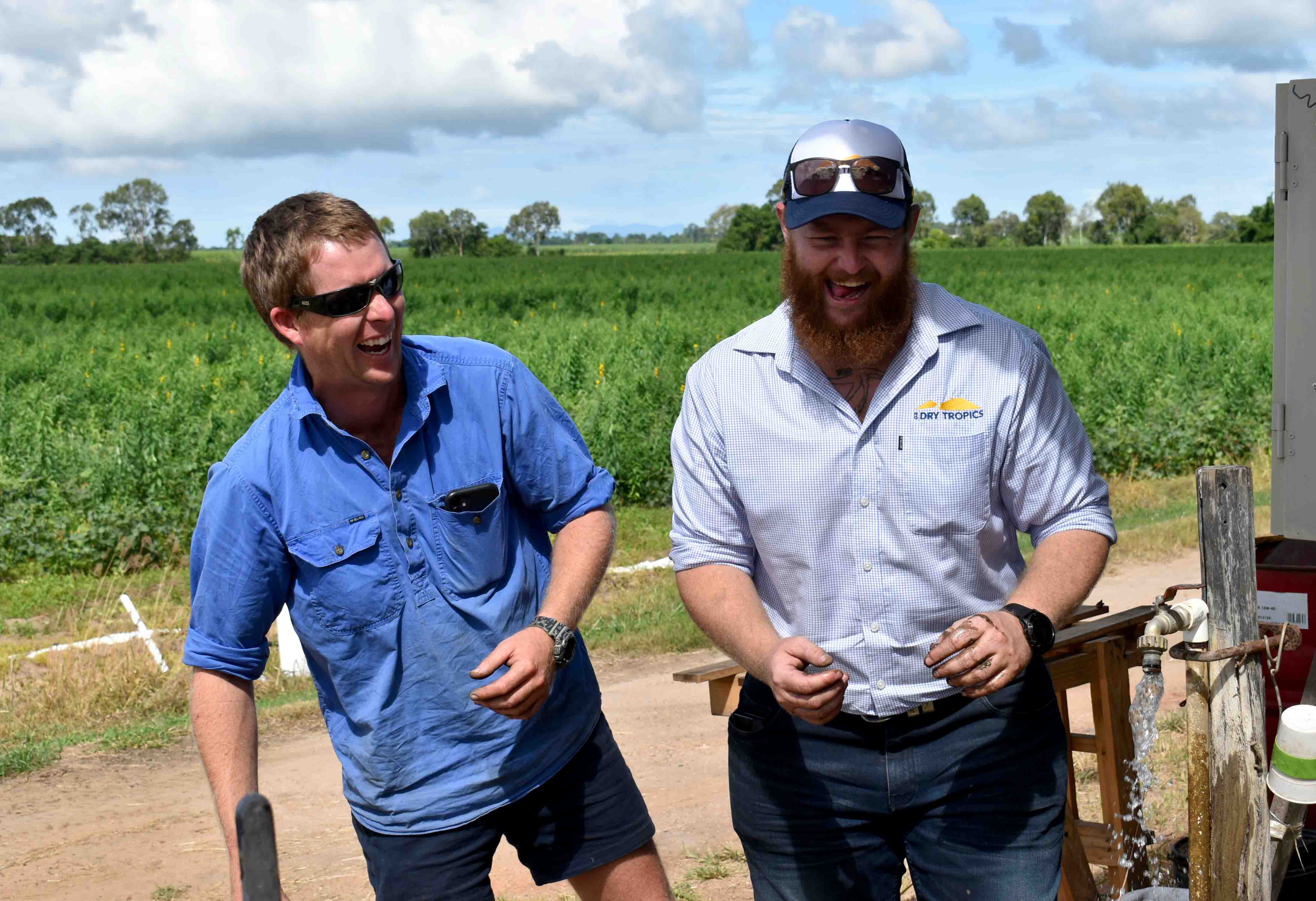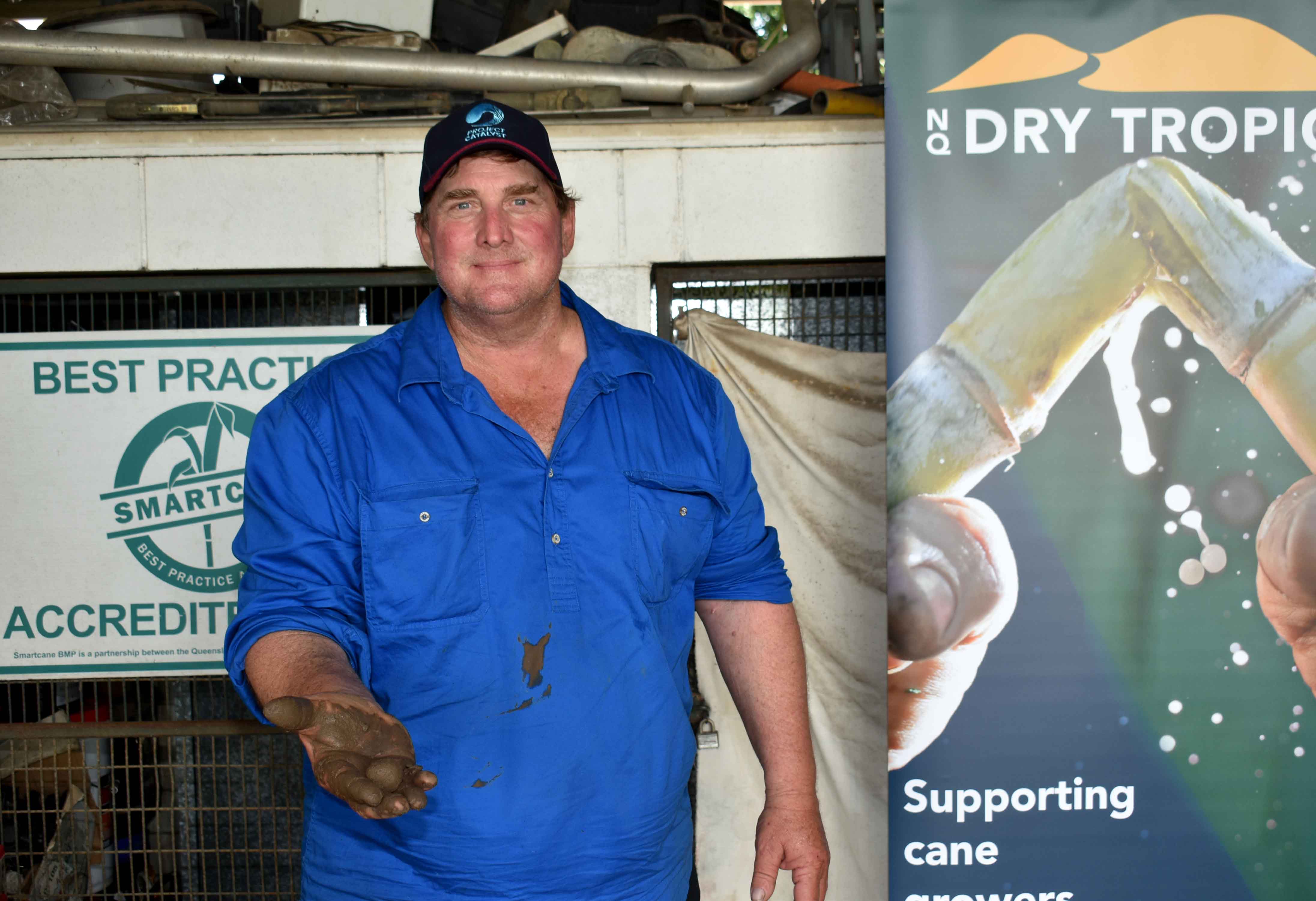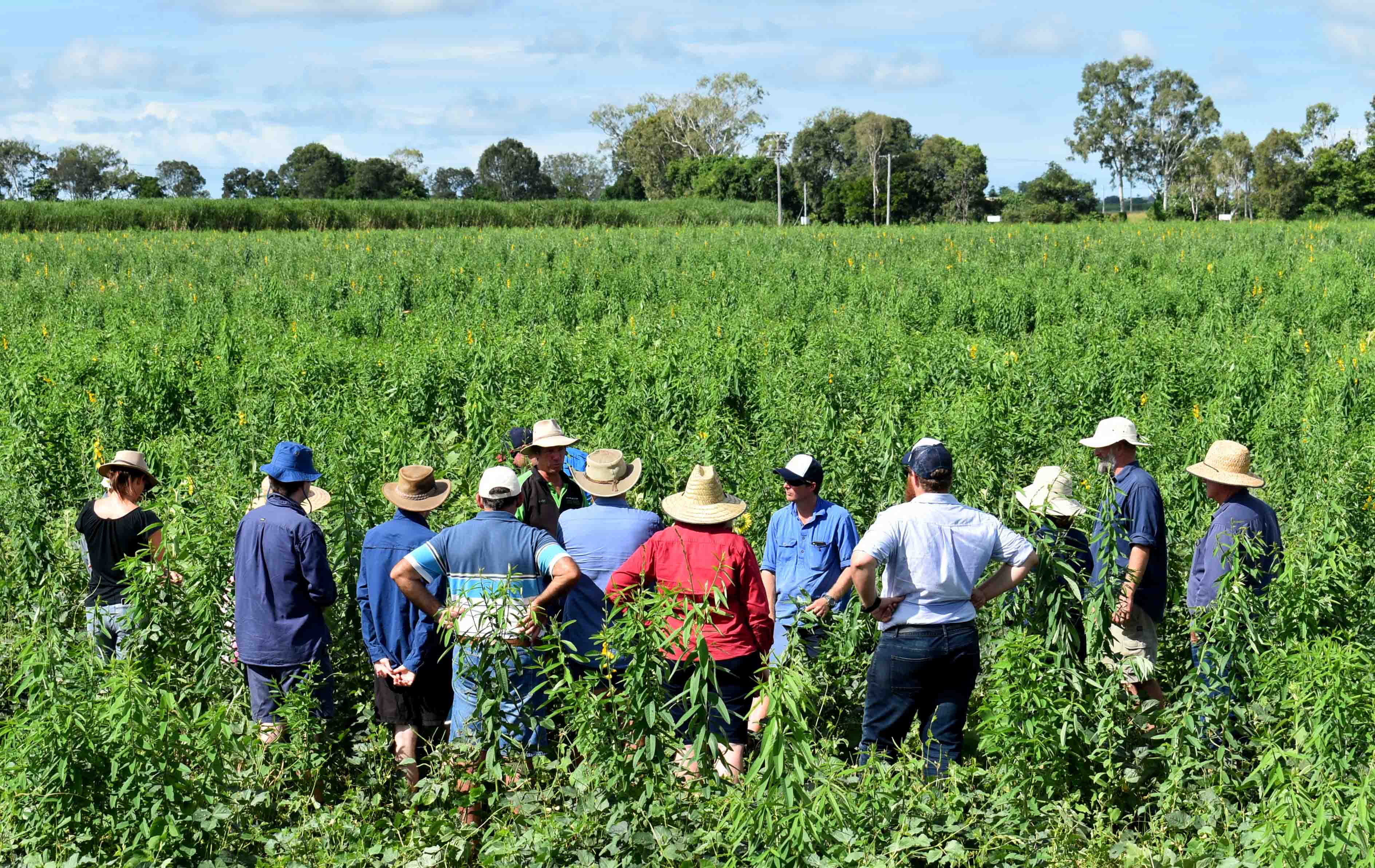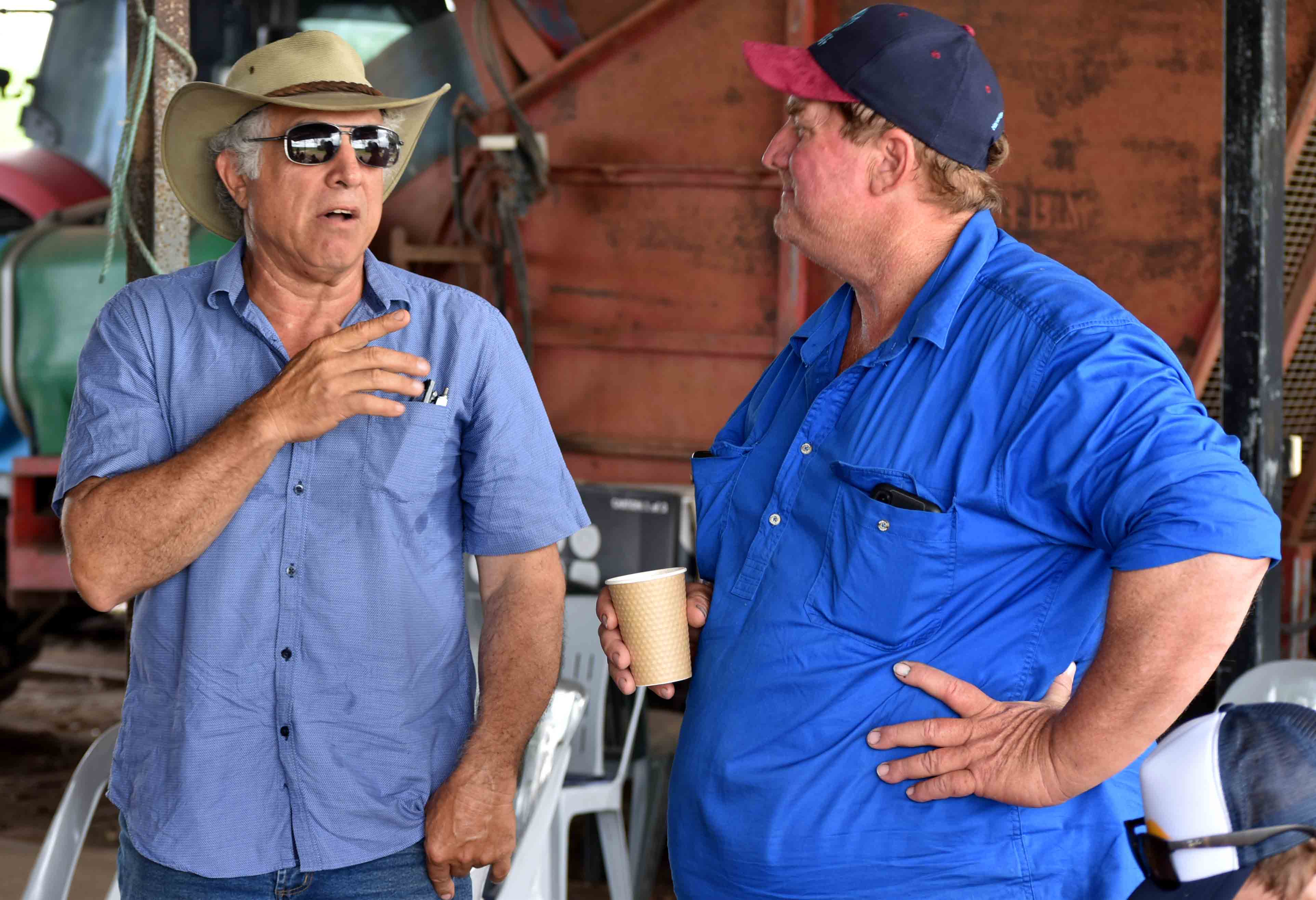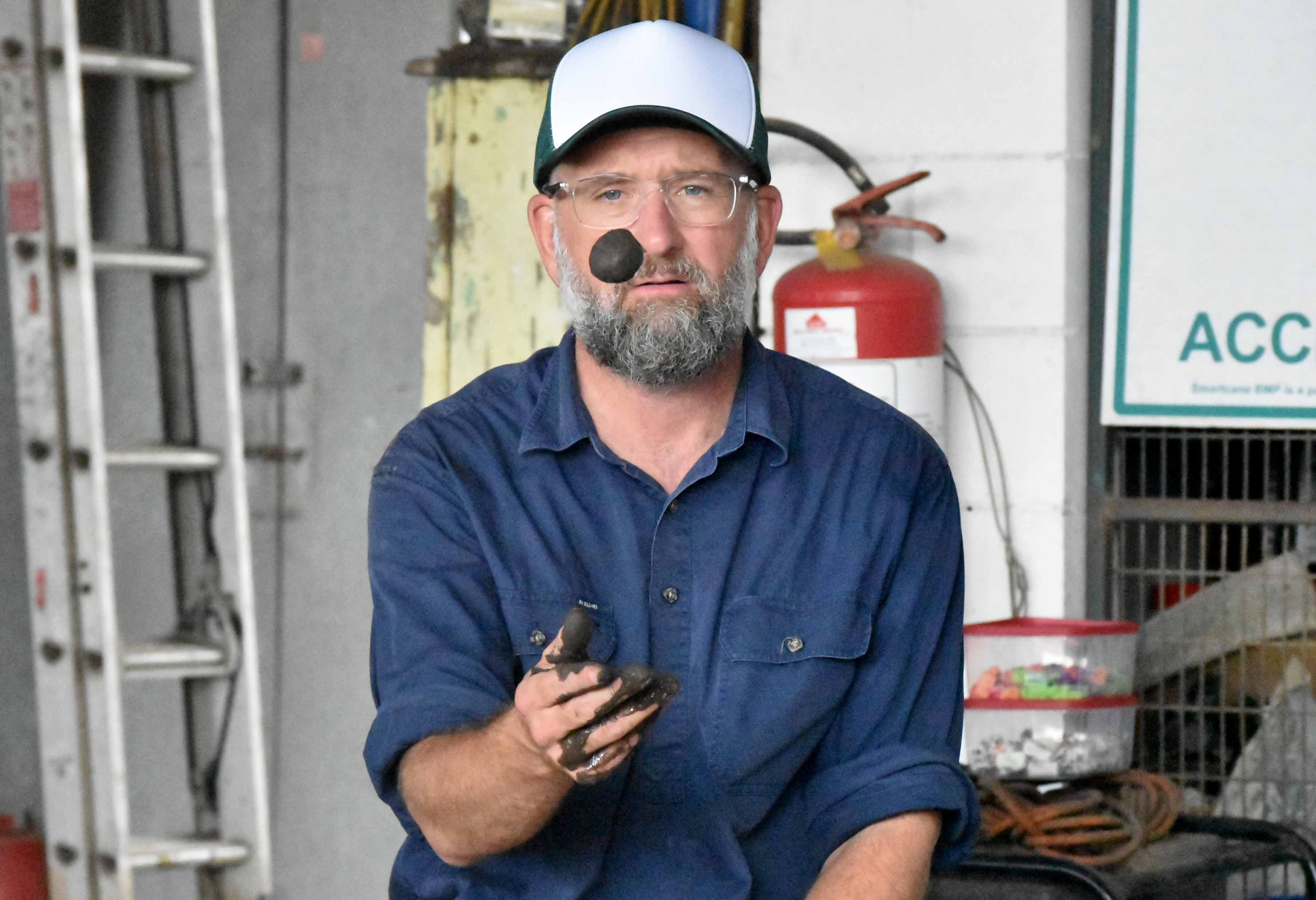Cane farmers learn benefits of soil health and cover cropping
A group of Lower Burdekin cane farmers recently learned about optimising soil health and the benefits of cover crops at a workshop held at Denis Pozzebon’s farm in Airville.
The workshop — the first of three taking place in the lower Burdekin during the next two months — was organised by NQ Dry Tropics and funded through the Queensland Government’s Reef Water Quality Program as part of the Enhanced Extension Coordination program.
Presenters David Hardwick and Simon Mattsson, from extension consultancy Soil Land Food, explained how healthy soil was critical to every farm business, and described some of the physical, chemical and biological aspects that influence soil condition.
Home Hill cane farmer Phillip Cardillo (left) with David Hardwick and NQ Dry Tropics Soil Conservation Officer Bernie Claussen.
Attendees learned how to identify soil texture by adding water, creating a ball (also known as a bolus) and making a ribbon-like structure. Later they visited a paddock to find out about Mr Pozzebon’s trial of mixed cover crops, including sunn hemp and sunflowers.
Mr Pozzebon said he thought he knew a lot about soil, but the workshop demonstrated there was much more to learn.
“Soil is not just dirt and the more you look after the health of your soil the better it becomes,” Mr Pozzebon said.
“I encourage all farmers to learn more about soil health — there is more to farming than sticking a seed in the ground.
“I’m also a firm believer in having some kind of legume crop on the paddock, and am in my second year of trialing mixed species on a fallow block.”
The workshop was the first in a series of three.
From left: NQ Dry Tropics Sugarcane Project Officer Michael Hobbs, David Hardwick (Soil, Land, Food), cane farmer Denis Pozzebon, NQ Dry Tropics Soil Conservation Officer Bernie Claussen.
Home Hill cane farmer Philip Cardillo, who attended the workshop, said he was interested in improving soil health to help diminish weed growth and reduce the need for chemical intervention.
“It was especially interesting to learn about the good bacteria that can help rejuvenate the soil,” Mr Cardillo said.
Co-presenter Simon Mattsson has been researching multi-species cover cropping since 2014. As a Nuffield scholar, he travelled the globe investigating the topic and observing how it was used in different environments.
“Multi-species cover cropping is an exceptionally good idea, which has been proven to be good practice in fallow management around the world,” Mr Mattsson said.
“It’s about adapting that idea to each different enterprise. It’s relatively new to sugarcane farming, but during the last few years we’ve seen wider adoption, and there’s still more research to be done.”
NQ Dry Tropics Sugarcane Project Officer Michael Hobbs said the project was bringing together cane farmers who are trialing mixed species cover crops, and providing them access to experts on cover cropping and soil health.
“These farmers are able to visit one another’s trial plots, discuss management options, and learn how to increase the overall soil health benefits of these practices,” Mr Hobbs said.
“Better soil health and higher soil organic carbon levels are key to improved production and profitability and there’s no better way to learn the tricks of the trade than from other farmers”.

